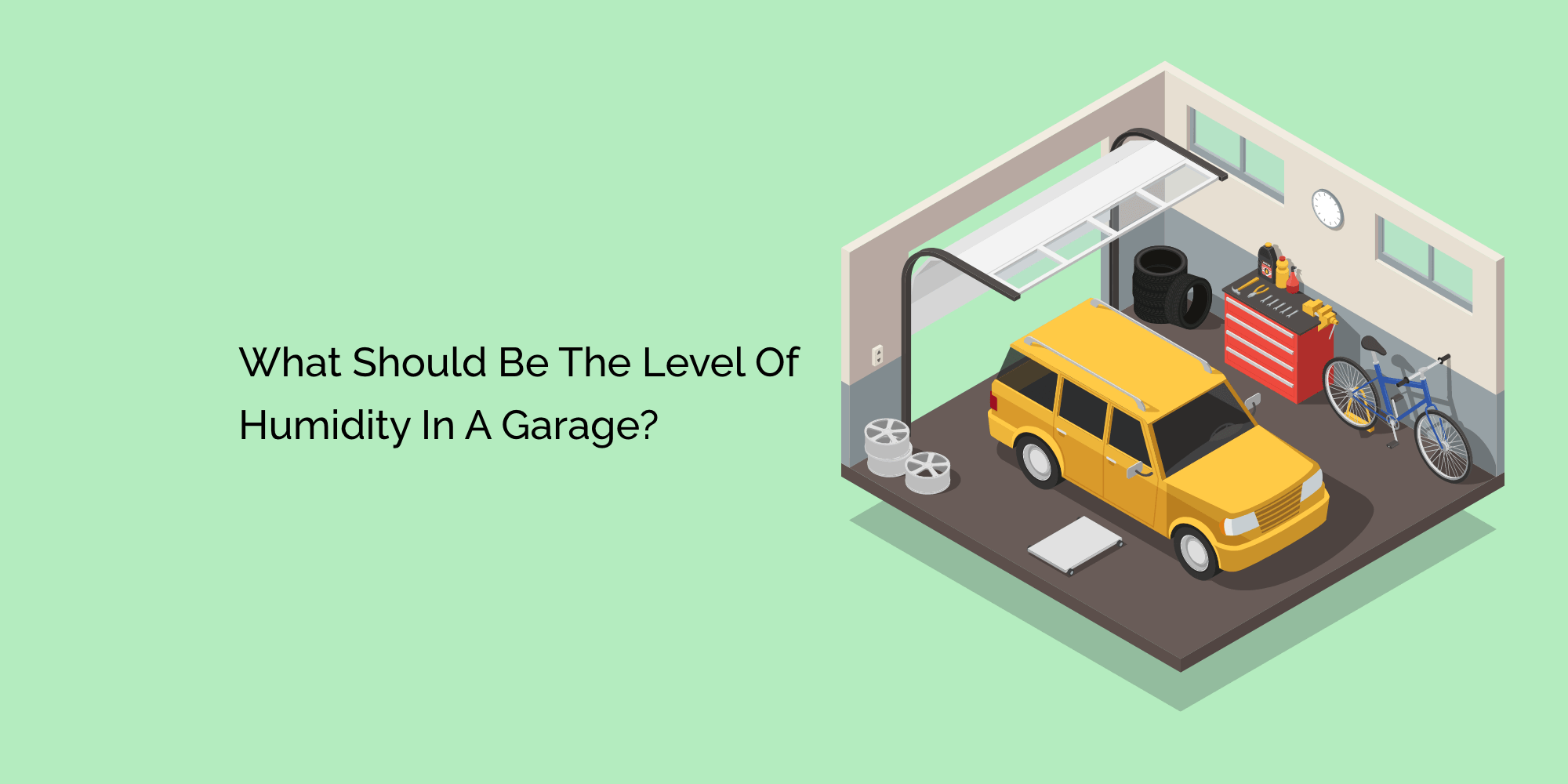When it comes to garages, absolute humidity levels are often overlooked. But it's important to maintain proper humidity levels in your garage to prevent damage to your vehicles and belongings, as well as to maintain the overall structural integrity of the garage itself.
In this blog post, we'll take a closer look at what humidity is, what the ideal humidity level is for a garage, and how to control relative humidity levels in your garage.
What is Humidity?
Humidity refers to the amount of water vapor in the air. When the air is holding as much moisture as it can, it's said to be at 100% humidity control. The warmer the air, the more moisture it can hold, which is why humidity levels tend to be higher in the summer months.
Humidity levels can have a significant impact on your health, as well as the health of your home and possessions. High humidity can lead to mold growth, which can trigger allergies and respiratory problems. It can also cause damage to wood, fabric, and electronics.
Low humidity, on the other hand, can cause dry skin and eyes, as well as damage to wood and other materials.
What is the Ideal Humidity Level for a Garage?
The ideal humidity level for a garage is between 30% and 50%. This range is optimal for both the structural integrity of the garage and the preservation of your belongings.
If the relative humidity level in your garage is too high, it can lead to mold growth and rotting of wooden structures. It can also cause rusting of metal tools and equipment.
On the other hand, if the humidity level is too low, it can cause cracking and warping of wooden structures, as well as damage to leather and other materials.
How to Control Humidity Levels in Your Garage
Now that we know what the ideal humidity level is for a garage, let's take a look at some steps you can take to control relative humidity levels in your own garage.
1- Install a Dehumidifier
One of the easiest and most effective ways to control humidity levels in your garage is to install a dehumidifier. A dehumidifier is a device that removes moisture from the air, reducing humidity levels.
When choosing a dehumidifier, make sure to choose one that's appropriately sized for your garage. A dehumidifier that's too small won't be able to effectively control humidity levels, while a dehumidifier that's too large will use more energy than necessary.
2- Install a Ventilation System
Another way to control humidity levels in your garage is to install a ventilation system. A ventilation system allows for the circulation of air, which can help to reduce relative humidity levels.
There are several different types of ventilation systems to choose from, including exhaust fans, attic vents, and soffit vents. The type of ventilation system you choose will depend on the size and layout of your garage.
3- Seal Any Gaps or Cracks
Gaps and cracks in your garage can allow moisture to enter, which can lead to high humidity levels. To prevent this from happening, it's important to seal any gaps or cracks in your garage.
This can be done using weatherstripping, caulking, or expanding foam. Make sure to pay special attention to areas around doors and windows, as these are common areas for gaps and cracks to form.
4- Use Desiccants
Desiccants are materials that absorb moisture from the air. They're often used in areas with high humidity levels to prevent damage to sensitive materials.
There are several different types of desiccants to choose from, including silica gel, activated charcoal, and calcium chloride. Silica gel is the most commonly used desiccant and can be purchased in bulk online or at hardware stores.
5- Store Belongings Properly
Proper storage of your belongings can also help to control humidity levels in your garage. Here are a few tips for storing your belongings in a way that reduces moisture:
-Use plastic storage containers with tight-fitting lids to keep out moisture.
-Elevate items off the floor with shelving or pallets to prevent contact with any moisture that may seep in.
-Avoid over-packing storage containers, as this can prevent air circulation and trap moisture inside.
-Consider using a moisture absorber, such as a desiccant, in storage containers to prevent moisture buildup
6- Maintain Your Garage Doors
Garage doors (garage door insulation) can be a major source of moist air leakage and moisture infiltration. To prevent this, it's important to maintain your garage doors and ensure they're properly sealed.
Here are a few tips for maintaining your garage doors:
-Check weatherstripping around the edges of the doors and replace any that's worn or damaged.
-Ensure that the garage door fits snugly against the weatherstripping to prevent air leaks.
-Keep the tracks and rollers clean and lubricated to prevent rust and corrosion.
7- Monitor Humidity Levels
Finally, it's important to monitor humidity levels in your garage regularly to ensure they're within the ideal range. You can purchase a hygrometer, which measures humidity levels, from a hardware store or online retailer.
If you notice that humidity levels are consistently outside the ideal range, it may be time to take additional steps to control humidity levels in your garage.
Conclusion
Maintaining proper humidity levels in your garage is essential for preventing damage to your belongings and the structural integrity of the garage itself.
The ideal humidity level for a garage is between 30% and 50%, and there are several steps you can take to control humidity levels, excess moisture, rainwater including installing a dehumidifier or ventilation system, sealing any gaps or cracks, using desiccants, storing belongings properly, maintaining your garage doors, heating and monitoring humidity levels regularly.
By taking these steps (setup), you can ensure that your garage remains a safe and healthy environment for your vehicles(wet car) and belongings.








